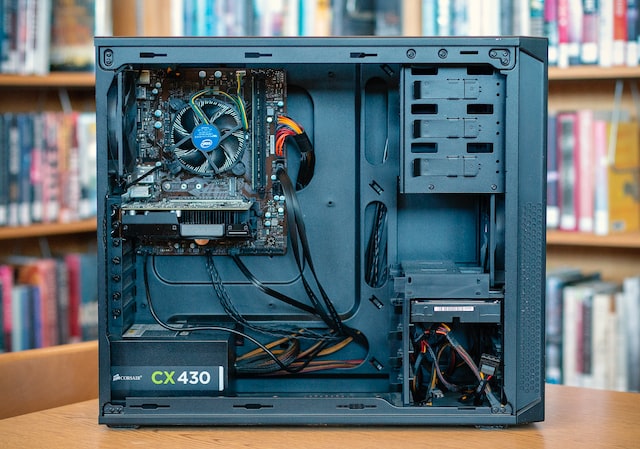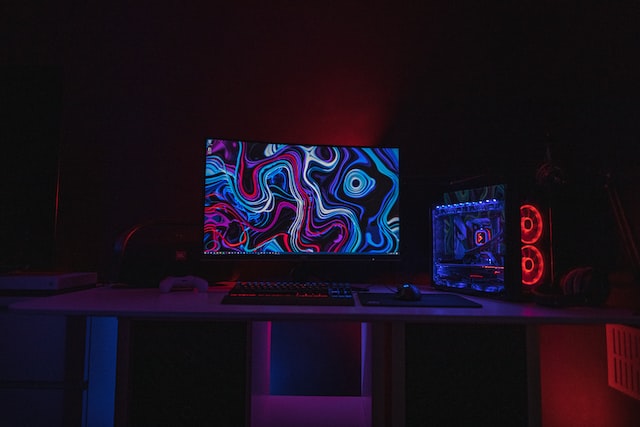PCs sure are expensive things. To meet our work requirements, we invest a lot of money into our machines to perform our daily tasks efficiently. And like every other expense, we want our computers to last as long as possible.
Sadly, PCs wear out over time and ask for replacements. But who wants to spend their money again and again?
Are there any ways to make PC components last longer?
Of course there are!
Personal computers consist of different hardware, and all hardware has a specific lifespan after which it doesn’t quite work as expected. But careful management and disciplined use can help squeeze out a few more years worth of top performance from your computers.

How to Make Your Power Supply Last Long
Generally, a Power Supply functions for about 5 to 10 years. Although this is a rough number, it is determined by various factors which concern its usage. But before we get into those, knowing what you should look for when buying one for yourself is integral.
Selecting a PSU
You should never compromise on quality. It is a must that you buy yourself a PSU from a reputable brand to ensure longevity, even though they are a bit more expensive than the rest! A high-quality power supply means that in case of power surges, the worst-case scenario would be the failure of the PSU itself. But in the case of unbranded PSUs, other components of your PC are prone to damage too.
After selecting the brand, you must also consider the power rating. PSUs have their power rated either for continuous or peak wattage. What’s the difference between the two?
- A constant wattage rating determines how much power a PSU can supply consistently.
- The Peak wattage rating is the maximum power that the PSU can supply.
The actual amount of power it consistently provides is much lesser. That means you should always go for ones rated for their continuous wattage.
The last thing you must check is the product certification, which is the “80 plus” you see on boxes. The ‘80’ shows its efficiency; the higher the efficiency, the lesser power is converted to heat. A gold-rated PSU is more efficient than a bronze one, but the difference is minimal.
Proper Usage and Maintenance
No matter how good your PSU is, it won’t last long without disciplined usage. The amount of stress you put on the unit directly affects its lifespan. High-stress activities can wear out the power supply. The more power it has to provide, the more it deteriorates. One of the best ways to ensure you get many years out of your PSU is to limit high-stress activities on your PC.
Activities such as mining cryptocurrency or overclocking your CPU or GPU put extra load on the power supply unit, which can damage it. So make sure that you avoid such actions. Some advise buying a unit with a higher continuous rating than what you require will help reduce the amount of stress on the power supply unit.

Maintaining your power supply unit is as essential. If you see dust on the fan or inside the PSU, you must clean it to ensure better ventilation and lower temperatures. You can easily remove dust by using a can of compressed air.
How to Make Other PC Components Last Longer
Now that we have discussed the PSU, let’s bring our attention to other PC components. Nobody wants to replace their PC components again and again. To keep your PC up and running for years, you will need to take care of a few things. Here, we have discussed a few things that will help your PC last as long as possible. Let’s get into it!
Keep it Clean
One of the most important things about owning a PC is taking care of its cleanliness. Dust and dirt can prove to be your computer’s worst enemies. Make sure to cover your PC when it is not being used to prevent dust from accumulating on the insides of your PC components. Cleaning of fans is a must to make sure that they provide efficient cooling. A healthy habit would be to clean your computer once every month or two. Canned air can quickly help remove dust particles as there is no risk of damaged components.
Maintain Temperatures
Overheating can cause many issues on your computer. While running and performing tasks, your CPU and GPU heat up, which is normal. But too high temperatures are hazardous, as they can affect the lifespan of your CPU, GPU, and hard drives. Remember to monitor your PC temperatures now and then. There is specific software designed for this very purpose that you can use to check the temperatures of different PC components.

As mentioned previously, a clean, dust-free computer helps with ventilation. Also, keeping your PC in a cool environment, away from direct sunlight, is better. It must have proper airflow so that the internal components stay cool. Placing a PC, for example, on a carpet will affect the airflow, preventing effective cooling. In addition, ensure you re-apply the thermal paste on your PC’s heat sink every three years to maintain low CPU temperatures. Remember, a cool PC is a healthy PC.
Use a Surge Protector
Power surges can be very damaging to your PC. Although they are not that common, one huge surge can fry your PC components. A small investment that can save you from a significant loss is a surge protector. These will protect your computer from spikes in voltage. It’s always better to be safe than sorry, so buying a surge protector would not be a bad idea.
So that was it from our side. Remember, your computer’s lifespan depends on how you use and maintain it. Take care of the points mentioned above, and you probably won’t have to worry about spending on your PC anytime soon.